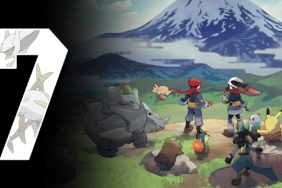This weekend I went to GaymerX, the first LGBTQ (Lesbian/Gay/Bisexual/Transexual/Queer) gaming convention. One thing that was understated about the con was what it meant for there to be a "Gaymer Con" of some sort, perhaps because it was so clear to the participants in a way that it might not be to others.
I can make some cogent arguments about why GaymerX is important to the gaming community at large. It started with a friend of mine, a straight girl, telling me that while she was cool with gay people, she didn't understand why they needed their own gaming conference; after all, she suggested, doesn't creating a gay gaming conference just amount to self-segregation from the overall gaming community?
It's not an uncommon argument from people who haven't been on the receiving end of the experience of the stigma against homosexuality or prejudice encountered by non-cis-gendered people (the word "cis-gender" is an academic way of identifying people with traditional straight preferences, values, gender, and orientation) that there seems like there's no reason for a gay conference, club, community, etc., because it separates them from larger societal groups. To address this first, it's not exactly self-segregation. There was hardly a "no-straight people" policy, and at one panel, a straight identifying man was cheered for showing up as an ally.
However, this response, of "why would you need that?" actually highlights one of the main reasons that it's imperative that these kinds of conferences/clubs/communities must exist, because they pose that very question? Why would they need that?
Well, because the needs of gay gamers are not being met. Completely leaving aside the use of epithets against homosexuals being a matter of course as a part of video game trash-talking, LGBTQ gamers are underserved as a gaming demographic, whose issues are not well-represented by developers or game publishers. Gay gamers pay for video games the same as everyone else, so creating their own convention says to game developers and publishers that this untapped demographic exists and can be exploited as a potential future market. An exploitable market is one worth making concessions to, including increases in sensitivity to LGBTQ issues.
And developers and publishers came to GaymerX. The most visible were representatives from Bioware, Edmonton. David Gaider, the lead writer for the Dragon Age series and Jessica Merizan, the community manager for projects by the Dragon Age and Mass Effect development teams, were the key panelists at many of the most popular panels, including topics like managing fan feedback and the development of romances in BioWare game narratives. They spoke to the development of gay romances in their games, and how the positive responses outweighed the negative; and that the angry responses about gay romances were most often result of a highly vocal minority that didn't represent the whole.
Apropos, one topic that was covered in a number of panels was the way that communities are starting to reject hateful speech, and developers are assisting in this. After the conclusion of the con, I accompanied a friend while she smoked. One of the other smoking attendees was a Microsoft employee who spoke about how they were creating programs to help handle offensive speech in the Xbox One community.
At a journalism panel featuring GameRevolution Senior Editor Nick Tan and GR writers Kevin Schaller and Jessica Vasquez, GR's own comment voting system was mentioned as a way where communities were creating accountability and self -olicing of negative or abusive content. Find yourself regularly voted down and your responses marginalized? The community might be trying to tell you something, and it sounds like that might kind of interaction may be coming soon to other gaming venues.
Nothing in or about GaymerX detracts from the straight gaming experience, and the positive results will only add to it. At the Game Developer's Conference for the past two years, I've attended at least four talks about how the increase in diverse teams make for more innovative game design, and more homogenous teams (meaning games made by straight white men, for straight white men) have resulted in games that focus on iterating upon existing ideas from prior successful formulas. This is why, the GDC panelists would seem to suggest, successful game series like Assassin's Creed and Call of Duty have become more streamlined, bland, and uninspired with each new iteration.
Increasing the number of voices that can be heard or addressed by the gaming industry will help create stronger, more diverse narratives. This increase in diversity will help build more vivid worlds with greater player choices. GaymerX allows people who are often drowned out by other voices a chance to speak to the industry and tell it what it wants, something that will help in creating those brighter visions of gaming's future.
The con was a triumph, one that was suitably capped by by Ellen McClain, the voice of GLaD0S, giving the conference its send-off with a "Still Alive" singalong. Outside of political or social ramifications, it was simply a great con. Many of the panels exceeded seated capacity, the mood was entirely positive, and there was a strong sense of community everywhere. That sense of open, friendly solidarity made it one of the most positive cons that I've had the privilege to attend.







